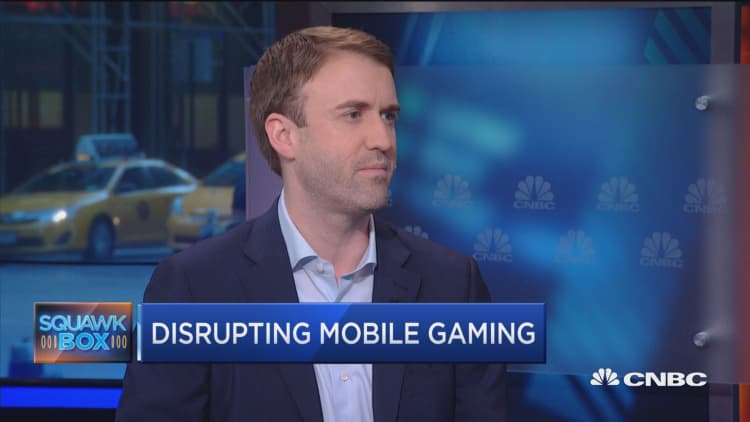
Machine Zone operates one of the most successful mobile video game franchises in the world: "Game of War." For its next trick, it will dramatically improve the efficiency of New Zealand's public transportation system.
The maker of free-to-play video games is leveraging the technology it uses to match players within its digital worlds to create solutions for complex real-world problems, like allocating money for advertisement buying or helping cities improve bus schedules.
"Machine Zone is really a real-time technology company. We've been focusing on many-to-many, kind of massive environments where millions of people can interact with each other at once," Gabe Leydon, Machine Zone founder and CEO, told CNBC's "Squawk Box" on Thursday.
Essentially, Machine Zone aims to organize cities in the way it manages its fantasy realms.
"Soon … entire cities will be networked in one real-time environment, which will create a level of efficiency that the world hasn't seen yet," he said.
In New Zealand, Machine Zone has created an app that now gives government a 360-degree view of its transportation ecosystem, allowing it to manage the fleets more efficiently, he explained. Much of that will eventually be done automatically through bots.
That same technology will soon allow New Zealand's citizens to see where every bus and train is down to the second.
"Anybody who's taken a bus knows that you should get to the stop 15, 30 minutes early. All of that is going to end," Leydon said.
The initiative in New Zealand only consumes about 1 percent of Machine Zone's capacity, he said. That means the technology is scalable and could be applied to a more complex transportation like New York City's.
Making the leap from video games to public transportation was merely a matter of recognizing the tech's potential, according to Leydon. The company currently uses that tech to monitor hundreds of thousands of players in its strategy games, its traffic sources, and how it spends money.
Machine Zone has already applied that process to marketing. It monitors the 298 networks through which it markets its games to load balance costs for price discovery.
"Let's just say you have 100 million devices out there. We could ping them once per second so we can create a kind of digital mirror of what's happening in the real world," he said.
Video games, marketing, and public transportation are just the start. According to Leydon, the process Machine Zone is advocating has applications in any area ripe for improved efficiency.




